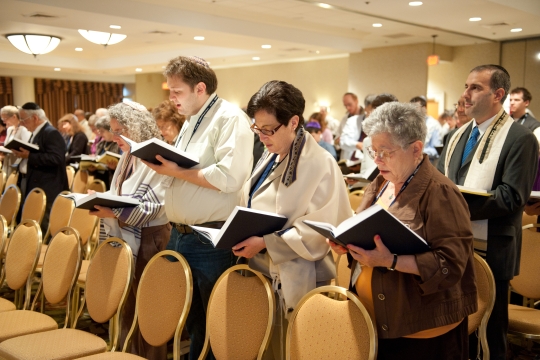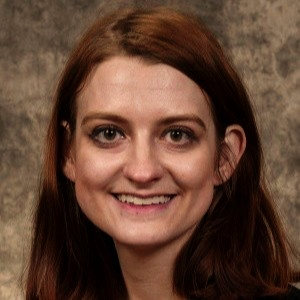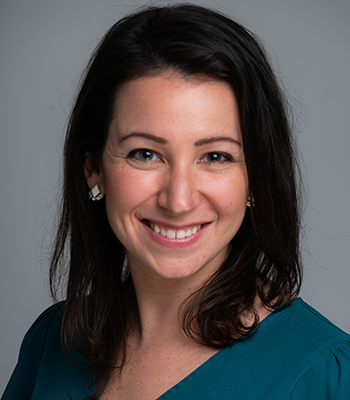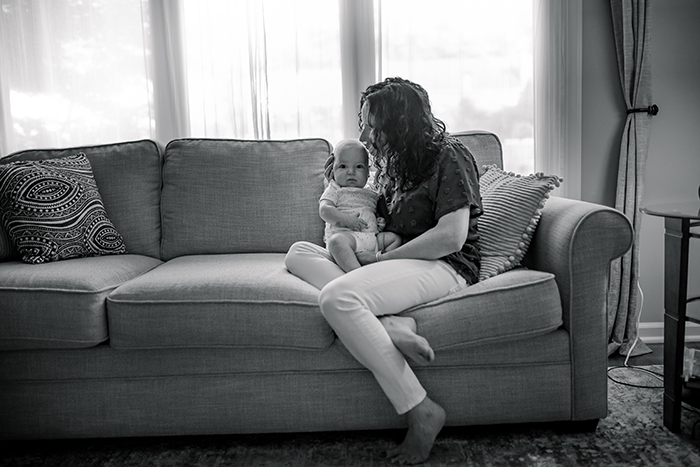
TW: Postpartum depression and postpartum anxiety
When we began writing this piece, we realized just how similar our experiences were as women who became first-time mothers during the COVID-19 pandemic. We gave birth a week apart, both via C-section, and both of our sons were premature (Lindsey's son was six weeks premature, while Crystal's was five weeks premature). We also discovered that we had experienced postpartum depression and anxiety after we became parents and had similar struggles with the stigmas surrounding PPD/PPA .
Crystal had done a lot of research on PPD/PPA since she knew she had several risk factors including family history and a history of depression. She explained, "For me, it started even before we left the hospital, but it got worse when we came home. I think I was crying every day the first week we were home. Once it hit the one-week mark, I called my doctor."
Lindsey's experience began at her six-week OB/GYN follow-up appointment. She said, "When they handed me the screening survey, I thought, 'Well yes, I do feel tired, and I don't have any interest in doing things, but of course that's the case - I'm six weeks postpartum!' So, I was conflicted, because I was worried that if I answered honestly, that would mean something was 'wrong' with me. I felt like I should be able to manage these things."
One of the most difficult things for us as we worked through our struggles was the glorification of the sacrifices that caregivers (especially those who identify as women) are expected to make. For instance, loss of interest in activities we previously enjoyed was a difficult benchmark to wrap our heads around. We'd been told that once we gave birth, we wouldn't have time for anything other than the baby. Therefore, losing interest in our hobbies was something we both figured was to be expected. In a way, if we lost interest in our hobbies, wasn't that an indication that we were adjusting to centering our lives around our children? Wasn't that what was supposed to happen?
However, once our symptoms started to disrupt our ability to function, we realized that what we were thinking and feeling was out of the norm, so we sought out help. Crystal reached out to her doctor, who was able to quickly get her on medication that began to help. Lindsey was able to find help through online support groups and a therapist. Both reached out to friends and family members for support. They agreed that one of the things that helped the most was asking their support networks for help as they adjusted to life as new parents.
If you find yourself struggling with PPD/PPA, or suspect you might have PPD/PPA, here's a list of some things Crystal and Lindsey found helpful:
- If you feel comfortable, reach out to your doctor or medical advisor.
- Find a therapist that you connect with.
- Join a new parents' group either in person or online.
- Call friends and family who are parents. Odds are, they've dealt with similar things!
- Hire a babysitter or ask a trusted friend to watch your child while you take some time for yourself.
- Prioritize self-care; do something you enjoy, even if only for a few minutes.
- Find ways to lessen your mental workload by having groceries delivered, asking for help preparing food, subscribing to meal-planning services, or having someone come over to help you clean.
Here are some Jewish mental health resources that might also help:
Local Congregations
Your local congregation may know about Jewish mental health services in your area and connect you to other services through a Federation, Jewish Family and Children's Services, etc. Find your local congregation.
Refuat Henefesh
Refuat Hanefesh offers a variety of webpages, blog posts, and other resources for those living with mental illness.
The Jewish Education Project
The Jewish Education Project has curated a collection of resources for those who live with mental illness.
The Blue Dove Foundation
The Blue Dove Foundation resources page has mental health materials curated by their staff and members of the Jewish community. The resources include prayers, rituals, videos, and articles.
Though we didn't tap into our Jewish communities at first, we've come to appreciate the role that Jewish ritual and our communities have played in helping us navigate our (sometimes intimidating) journeys as first-time parents. Crystal shared, "As I got more involved with my Jewish community, there were so many people who helped me in ways ranging from offering (solicited) advice and sharing their own experiences as parents to providing babysitting so I could have a break."
Jewish rituals have also been a huge help for Crystal, giving her something to center her weeks around in the case of Shabbat, and helping her broaden her understanding of what it means to create meaningful rituals and holidays. You can read more about that in her recent post, "Dayenu: the Power of Enough-ness."
For Lindsey, attending Tot Shabbat with her family reassured her that other parents with young kids were looking for community, as well.
For those of you who are new or soon-to-be parents, please know that it's possible to still enjoy life and take part in your hobbies even after giving birth. Crystal was able to start and complete a full-sized crochet blanket by working on it while she pumped breastmilk. Lindsey found ways to incorporate her enjoyment of the outdoors by joining a mom group that exercises outside with their kids in the mornings. While parenthood is an adjustment, and the new child takes priority, you can find ways to still do things for yourself. You don't need to (nor should you) lose yourself in your role as a parent. If you feel overwhelmed, there are always resources to help.
Related Posts
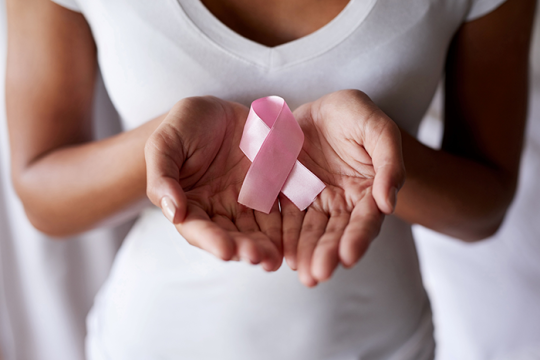
The Holy Act of Caring for our Bodies: The Importance of Breast Cancer Testing Early and Often
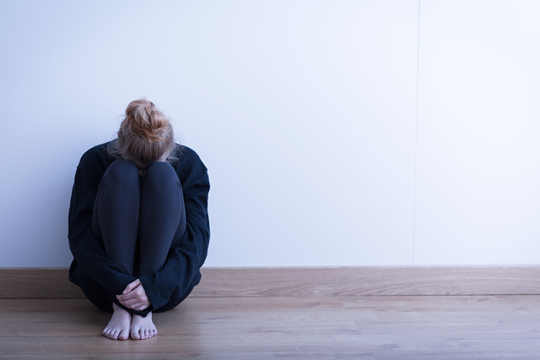
Navigating Infertility: Resources, Reflections, and Rituals
